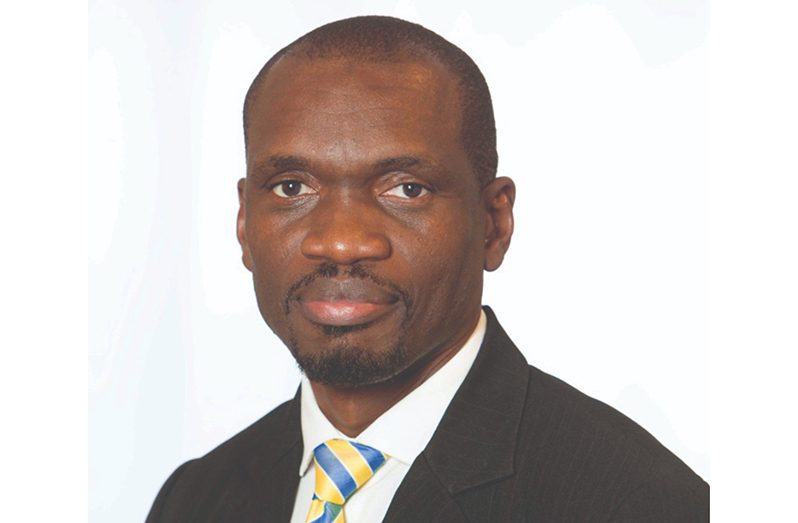False names, funny names and derogatory characterisation
DURING this past week, there was a big blow up over Vice-President Jagdeo’s reference to Cathy Hughes. The reference itself need not be repeated here because it was widely reported and if you didn’t hear about it, it may be safe to say you are a hermitised under-a-rock dweller.
In almost every profession on earth there are a litany of false, funny or derogatory names people get called, albeit of a different nature. Inevitably some people do cross the line. In some cases, the line is clear and in other cases the line is ill defined. No matter the profession or persons involved, racial epithets, sexual harassment, incitement of violence, attack on underaged children and negative gender specific labels, are clearly over the line. Then there are grey areas, most notable, making references to physical deformities that comes under statutory classification as disability. The other grey area is libelous speech.
I believe the following three professions are arguably more subjected (or pre disposed) to name calling; frontline service attendants, sportsmen/women and politicians. Frontline service attendants are a broad group of persons who treat with the public to deliver services. Every form of frustration, disappointment and failed expectation with relation to acquisition of a service can be projected on to the attendant in the form of negative labeling, this is quite commonplace.
Because of the competitive nature of sports, athletes and (in some cases) sport organisations receive the brunt of the frustration of fans, journalists, commentators and rival athletes. Wherever there is intense competition, there will be inflamed passions. This leads to creative name calling, some of which are derogatory either by calculation, injudicious word choice or reckless thoughtlessness.
In politics the landscape is tougher to navigate. Politics involves more loosely defined freedom of speech issues, democratic accountabilities that cannot be articulated in quite the same manner as the other professions. There are boundaries that can be pushed, requiring greater elasticity of tolerance. Certain utterances from politicians are protected in ways no other profession enjoy. In hotly contested political fields like Guyana, the vitriol of name calling can be sulfuric, with valence intensity that will make even the unknown cosmological observer puke with astonishment. My own conviction is, that once by virtue of choices you have made, put yourself up as a public spectacle, especially if you live off the public purse you need to grow one layer of rhino skin covered by the pelt of an elephant and then some. Politics is not for the faint of heart. If you live in the public limelight, you will be tagged.
The tolerance threshold for absorbing political name calling among some politicians is extremely low. Be that as it may, that’s your personal standards, but be consistent. Cathy Hughes expressed swift furor over the tag she was given. The outcry was loud, sharp and shrill. This selective outrage is bellowing with double standards.
My thing is that, if you are totally against unpleasant labels then not only must you not indulge in the practice yourself but you must also hold those around you accountable. The leader of Cathy Hughes’ party has for years referred to members of the governing party as Jagabats, her party’s General Secretary is on social media almost daily referring to people in public life as Jagabats and Trench Crappo.
These are very derogatory epithets. There is no public record of Cathy Hughes calling for human rights reporting and repositioning. I have not heard one word of advocacy for anyone who was psychologically harmed. Therefore, we are left to conclude that Cathy Hughes believes that political labels are fair game, but she is a sacred cow that stands above the fray. The other view is that she may have a problem with that specific label attributed to her, probably because it places her squarely among lower ranks of society, the mere suggestion seems offensive.
My own belief is that politicians and public figures, especially those living off the treasury, should absorb a lot of name-calling even those bordering on libel. When social media commentator Gavin Matthews was detained for two stinging labels directed Charles Ramson Jr, I expressed the same sentiments. I wrote that Ramson Jr should grow some thick skin, man up and move on. He was unnecessarily dragging Matthews out of obscurity. Some of these labels may be jarring, unfair, embarrassing and in some cases derogatory, but it is part of the collateral damage and trade-off for achieving the lofty heights of public office. These people are in the top one per cent of power brokers in Guyana. Decisions they make can affect the future of the nation for another half century and beyond. Crying over a negative label is nothing more than an inevitable irritant.
In more than one cases before the local courts where senior politicians were sued for libel resulting from things they said in public, attorneys have petitioned the court to consider that people in public life have “qualified privileges.” I cannot comment on the weight of this as a legal argument, but in the sociology of practical politics, I support this concept. It simply means that those in public office must be able to give and take harsh political labels in the course of fulfilling their statutory public functions.



.jpg)








